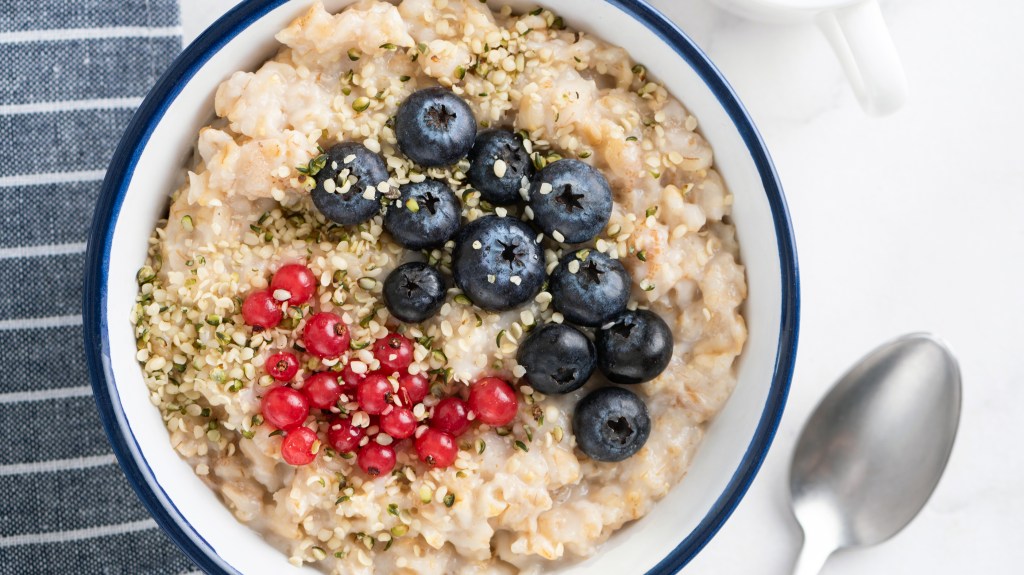Nutritious Meal Ideas for Students During Exam Season
As students navigate the high-stress period of exams, maintaining a balanced diet can significantly enhance their focus, mood, and overall academic performance. Nutritionist Rob Hobson, author of Unprocess Your Family Life, offers essential tips for parents looking to support their teens during this crucial time.
A 2019 study published in Frontiers in Public Health indicated that secondary school students who skipped breakfast tended to achieve lower grades compared to those who made a point to eat in the morning.
Hobson recommends meals rich in slow-release carbohydrates. He suggests options like overnight oats with seeds, porridge, or scrambled eggs on wholegrain toast. Alternatively, a smoothie made with berries, nut butter, and oats is another easy option.
These slow-release carbohydrates help maintain steady energy levels, offering a gradual release of glucose to the brain, thereby reducing the sugar spikes associated with sugary cereals or spreads like Nutella.
Additionally, such meals can aid in the body’s release of serotonin, a neurotransmitter that lifts mood, suppresses appetite, and provides essential B vitamins vital for converting food into energy, according to Hobson.
Consuming an oat-rich breakfast can also provide iron, crucial for forming red blood cells that deliver oxygen to the brain. This is particularly important for teenage girls, who may experience cognitive fog when they lack iron.
![]()
Healthy Snacks to Keep Energy Levels Up
Nourishing snacks are key, according to Hobson, who recommends energy balls, oat muffins, and banana bread. “As long as nutritious options are accessible, teens will opt for them,” he noted. If time is limited, quick options like apple slices with nut butter, edamame, or boiled eggs can help maintain energy and concentration during study sessions. Hobson warns against ultra-processed foods, as a 2022 study involving over 10,000 adults in the U.S. found a correlation between high consumption of these foods and increased reports of mild depression and anxiety.
Instead, Hobson suggests healthier alternatives such as corn tortilla chips in place of potato crisps or switching from milk chocolate to dark chocolate, which contains at least 70% cocoa. Dark chocolate has about 15% of the daily recommended magnesium intake, beneficial for enhancing focus and motivation.
Incorporate Protein-Rich Foods for Sustained Energy
Protein-rich foods like eggs, fish, lentils, and tofu can promote steady energy levels while supporting the production of neurotransmitters such as dopamine and serotonin, both essential for focus and mood regulation, Hobson explains.
Research from the German Institute of Human Nutrition in 2021 found that adequate protein intake can enhance executive function and working memory, particularly during demanding tasks. Further studies from Maastricht University Medical Centre indicated that protein intake can improve reaction times.
Oily fish, combined with its high protein content, supplies omega-3 fatty acids known for their benefits to memory and cognitive function. For teens who may not enjoy traditional fish dishes, Hobson suggests alternatives like fishcakes, sushi, or spicy pasta with canned fish to incorporate these nutrients seamlessly.
During stressful times, comforting meals can provide solace when appetites wane, and batch cooking can simplify meal preparation for parents.
Importance of Hydration for Enhanced Concentration
According to Hobson, even mild dehydration can significantly impact short-term memory and attention spans. While the common recommendation of eight glasses of water a day varies by individual, ensuring that teens have a large bottle nearby that they refill regularly can promote better hydration habits throughout the day.
Hobson also suggests offering calming herbal teas like chamomile or valerian root to children in their study spaces, while emphasizing that energy drinks must be avoided. Ideally, alcohol consumption should also be limited, as even a single night of drinking can diminish motivation and cognitive performance.
Rob Hobson continues to advocate for healthy eating habits among kids and families to foster adventurous and nutritious meal choices.




Post Comment